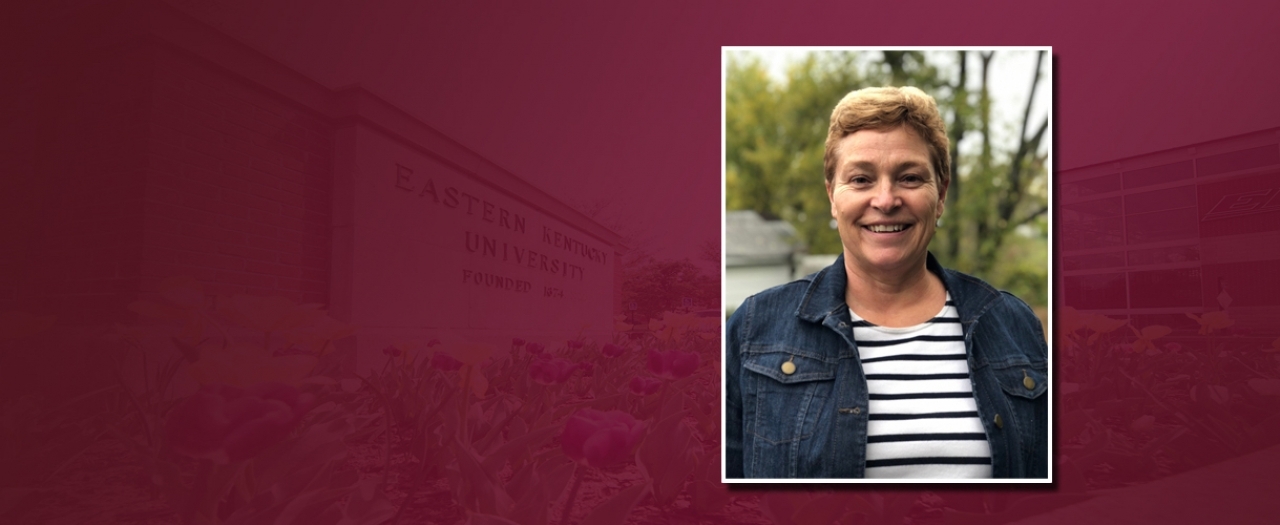This is another in a series of interviews with staff, faculty and administrators across campus promoting the goals of EKU’s Quality Enhancement Plan. The current QEP, Read with Purpose, calls for Eastern to develop critical readers through the use of metacognitive strategies. Building on the past QEP, which focused on developing critical and creative thinkers, this effort represents the University’s commitment to institutional improvement, and provides a long-term focus for faculty and staff professional development and student learning.
This installment in the QEP Spotlight series features Camille Skubik-Peplaski, professor in the Department of Occupational Science and Occupational Therapy at EKU.
Q. In what ways have you been involved with the EKU QEP, Read with Purpose?
A: I had the pleasure of participating in an EKU QEP professional learning community (PLC) held within my department. We met for several weeks and were able to discuss how to address critical reading within our curriculum and apply the concepts in our current classes. After this PLC Dr. O'Brien and I embarked on a three year study examining how graduate students in professional programs read research.
Q: In what ways is the QEP relevant to your discipline?
A: Occupational therapy educators strive to promote metacognitive capabilities, fostering a student’s ability to have active control over the cognitive processes engaged in learning. Reading is the primary avenue that students learn through. Manarin, Carey, Rathburn and Ryland (2015) found that students can struggle to read well enough to comprehend disciplinary knowledge. Diminished ability to comprehend may affect a student’s ability to critically think, clinically reason and develop skill competency. Therefore, critical reading is a fundamental skill that our students need to be successful occupational therapists.
Q: In what ways has QEP professional development impacted your teaching?
A: I now evaluate student reading capabilities in the beginning of the semester with the Metacognitive Awareness of Reading Strategies Inventory, then I demonstrate how to critically read a research article then give as an assignment and weekly I give critical reading techniques to the students. In the tenth week of class I ask them to reflect on how their reading has changed and repeat the same Inventory in week thirteen. Critical reading is now often a topic of discussion in the class. We discuss critical reading in regards to reading their textbook and research studies.
Q: What impact is the QEP having on student learning in your discipline?
A: In the last two years of our study the students involved have demonstrated significant changes in their ability to critically read. The students have reported qualitatively that they have moved from a transmission learning style to a transactional reading style. Using Critical Reading techniques has increased student engagement in my classes.
Q: How does the QEP benefit the campus community?
A: The campus benefits from the critical reading QEP as it allows a professor to keep critical reading techniques at the forefront of my teaching methods. Helping the students to learn, engage and participate in their professional reading helps them to be a better occupational therapist and a lifelong learner.
Q: How will you continue to promote critical reading in your courses, discipline, or across the university?
A: I have worked to combine both critical reading and metacognitive learning concepts to increase student engagement in class and overall to foster student excitement to learn. All I need to do is read a few of the quotes my students posted on discussion board about critical reading to remind me how important it is to their learning and for the future of our profession. I conclude with two quotes here:
"The material in this course is difficult to digest when reading. I use critical reading techniques when completing the course readings by writing a summary of each section I read in my own words, paraphrasing key points, and writing definitions for terms in bold, or terms I don't know/understand. At the end of the readings I try to do the review questions to make sure I comprehended the readings." And "One concept that has really helped me in this class is to read and take summary notes before class. That was I understand what is really going on in the power-points. I think for me it is beneficial to summarize in my own words that way I know what the definition or concept means, instead of just memorizing it word for word. I also meet with Olivia before our tests and talk things out because one of us may think of a good example or explain something better to help the other person comprehend it."
